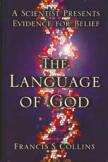The Nature of It All
This intelligent book has even greater appeal because the author is a person of deep religious faith even as he is grounded intellectually and spiritually in science. He is that rarity who practices what he preaches. But it was not always that way. The son of free-thinking parents, Collins had little interest in religion, in contrast to his enormous interest in science. By the time he was pursuing his doctorate, his agnosticism had given way to atheism. But then came his decision to abandon doctoral studies and enter medical school at the University of North Carolina. There his first exposure to medical genetics and bedside conversations with patients who had deep religious beliefs made a lasting impression. One conversation in particular appears to have been a turning point of sorts. When asked what he believed in, Collins could only say, I’m not really sure.
That prompted him to undertake an intellectual journey with the goal of confirming his atheism. Instead, though, he abandoned it for belief in God and the conclusion that science and religious belief are quite compatible. This occurred despite four issues that were of particular concern to himnamely, God as mere wish fulfillment, the harm that has been and continues to be done in the name of religion, the compatibility of human suffering with the notion of a loving God, and miracles. Instead of rejecting religion, Collins concluded that the human yearning for God is too deep-seated to be an invention, and the truth of religion is too compelling to be rejected because of the hypocrisy of some who profess religion.
But it is Collins’s response to the problem of miracles that illuminates most clearly his frame of mind. Those rejecting any need for religion might do so on the grounds that everything, even the most unlikely, can, in the final analysis, be explained by the laws of nature. But this is not true about the origins of the universe, which, Collins insists, cannot now and will not be explained by the laws of nature, implying that this may be the mother of all miracles! In other words, while it is the scientific consensus that the universe began at one momentthe so-called Big Bangwhat preceded this moment remains uncertain and beyond the reach of science to determine. To reinforce this point, Collins cites Stephen Hawking’s observation that explaining why our universe emerged from the Big Bang is difficult unless it was the act of some God intent on creating human beings like us.
By Collins’s own admission, C. S. Lewis’s discussion in Mere Christianity of the moral law as a clue to the meaning of the universe has been a major influence in shaping his understanding of the relation between science and religion. Lewis argues that evidence for a universal sense of right and wrong, regardless of time, differing cultures or religion, should prompt us to ask where it came from. According to Lewis, just as the architect of a house cannot be any part of the house, the source of the moral law could only be found outside us but is experienced as a command within urging us to behave in a certain way. This command, Collins argues, as though to complete Lewis’s thought, points to the existence of God.
But we might recall that when Cicero discussed natural law, he described it as a consonance between right reason and nature. It therefore applies universally and without exception, and we have only to look inward to explain and interpret it. In other words, the law, whether in what it commands or in what it prohibits, is universal by virtue of its origin in the nature common to human beings. And even if, as Cicero also asserts, God is ultimately its author, natural law is universally discernible without recourse to some belief in God. The Catholic Church goes further, teaching that the authority of natural law is not contingent on belief in God.
Viewed in this light, Hawking’s suggestion that the Big Bang implies something theological has a Delphic quality to it. Instead of understanding it to mean our universe is ultimately inexplicable without God, is it not just as reasonable to understand it to mean that God is unthinkable without our universe? When Einstein said it was impossible to be a scientist without knowing the external world is real, he also said that such knowledge comes to the scientist not by reason but by an intuition remarkably like faith. In other words, if the scientist feels she knows anything, it is because consciously or unconsciously she believes she can know at all. As Collins discusses it here, his language of God appears to draw the same plausible inference.
This article also appeared in print, under the headline “The Nature of It All,” in the January 1, 2007, issue.








